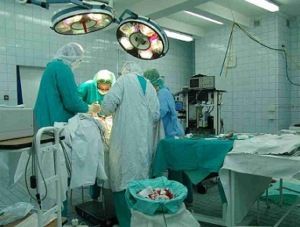News
Smoked human flesh can damage your health!
This article is more than 6 years old.
New surgical methods are causing respiratory problems for doctors and nurses involved in operations

Just like Bill Clinton, it’s best not to inhale too much (photo: Piotr Bodzek, MD)
It sounds like something from a rather nasty horror film, but is nonetheless true: nurses and doctors working in operating theatres in Denmark are exposed to toxic smoke and particles from burnt human flesh.
These days, most surgery takes place using electronic instruments to cut through tissue by burning it, but this generates smoke and carcinogenic particles.
Although personnel wear masks, it seems that they are not finely-woven enough to filter out all the toxic particles.
A pack a day
The smoke can contain more than 80 toxic chemicals, and being in an operating theatre for a whole day is the equivalent of smoking 25-30 cigarettes.
There is also twice as high a risk of contracting respiratory disorders such as chronic obstructive lung disease amongst theatre personnel when compared to nursing staff in other departments.
Better masks needed
Southwest Jutland’s hospital is one place where they have encountered the problem.
“There’s no doubt that we are doing what we can. We can’t stop the smoke from occurring, but we have to prevent its effect on our employees,” the chief nurse, Arne Brehm, told DR Nyheder.
A research project has been initiated in Viborg’s regional hospital to test 300 different types of mask, and Brehm is keeping a close eye on developments.
All the masks have filters fine enough to keep 95 percent of the smoke particles out, but the tests will prove whether they also sit close enough on the face.










































